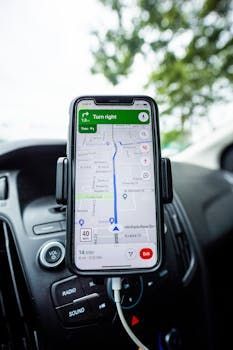
Google Ads represents one of the most powerful and immediate ways for St. Louis businesses to reach potential customers actively searching for their products and services. Unlike traditional advertising methods that cast wide nets hoping to catch interested prospects, Google Ads places your business directly in front of people who are already expressing intent to purchase, making it an incredibly efficient marketing channel when managed properly.
The beauty of Google Ads lies in its ability to deliver instant visibility and measurable results while allowing precise control over budgets, targeting, and messaging. For St. Louis businesses competing in local markets, Google Ads can level the playing field with larger competitors while providing detailed insights into customer behavior and preferences that inform broader marketing strategies.
Success with Google Ads requires understanding the platform's complexities, from keyword research and ad creation to bid management and conversion tracking. Whether you're a restaurant hoping to attract dinner reservations, a service provider seeking new clients, or a retailer looking to drive online sales, strategic Google Ads management can transform your digital presence and accelerate business growth throughout the Greater St. Louis area.
1. Understanding Google Ads Fundamentals
Google Ads operates on a pay-per-click auction system where businesses bid on keywords related to their products or services, with ads appearing when users search for those terms. The platform considers bid amount, ad quality, and relevance when determining which ads appear and in what order. This system rewards businesses that create relevant, helpful ads rather than simply those with the highest budgets, making it possible for small St. Louis businesses to compete effectively with larger companies.
Campaign structure forms the foundation of successful Google Ads management, with organized hierarchies of campaigns, ad groups, and keywords that allow precise control over messaging, targeting, and budgets. Proper structure enables businesses to create specific ads for different products, services, or customer segments while maintaining clear tracking and optimization pathways. St. Louis businesses benefit from structured campaigns that can target specific neighborhoods, showcase local expertise, and highlight community connections.
Quality Score represents Google's assessment of ad relevance and user experience, affecting both ad positioning and cost-per-click rates. Higher Quality Scores result from relevant keywords, compelling ad copy, and landing pages that provide valuable information related to user searches. For local businesses, Quality Score improvements often come from incorporating location-specific terms, addressing local customer needs, and creating landing pages that highlight community connections and local expertise.

Budget management involves setting daily spending limits and bid strategies that align with business goals while maximizing return on advertising investment. Google Ads offers various bidding options, from manual cost-per-click control to automated strategies that optimize for conversions, clicks, or impression share. Understanding when and how to use different bidding strategies helps St. Louis businesses achieve their specific objectives, whether that's maximizing phone calls, driving website traffic, or generating online sales.
2. Keyword Research and Local Targeting
Effective keyword research identifies the specific terms and phrases that potential customers use when searching for products or services in the St. Louis area. This includes broad commercial terms, specific product names, and location-modified keywords that capture users looking for nearby businesses. Local keyword research often reveals unique regional terms, neighborhood names, and local landmarks that can provide competitive advantages for businesses that understand their local market nuances.
Geographic targeting allows St. Louis businesses to focus their advertising budgets on specific areas where their customers are most likely to be located. This includes radius targeting around business locations, targeting specific zip codes or neighborhoods, and excluding areas where services aren't available or economically viable. Precise geographic targeting ensures that advertising budgets focus on reaching people who can actually become customers while avoiding wasted spend on irrelevant traffic.
Competitive keyword analysis reveals what terms competitors are bidding on and how they're positioning their ads, providing insights for developing differentiated strategies. Understanding competitive landscape helps identify opportunities for unique positioning, uncontested keyword niches, and messaging that highlights distinctive business advantages. St. Louis businesses can leverage local knowledge and community connections to compete effectively against national companies that may lack local market understanding.
Long-tail keyword strategies focus on specific, detailed search phrases that typically have lower competition and higher conversion rates than broad, general terms. For example, "emergency plumber Clayton Missouri" is more specific and likely to convert better than simply "plumber." Long-tail keywords often cost less per click while attracting more qualified prospects who are further along in their decision-making process and more likely to become customers.
3. Ad Creation and Messaging Strategy
Compelling ad copy balances informative content with persuasive messaging that motivates users to click while accurately representing what they'll find on your website. Effective ads include relevant keywords, clear value propositions, and strong calls-to-action that guide users toward desired actions. For St. Louis businesses, ad copy can highlight local expertise, community involvement, and personal service approaches that differentiate them from national competitors.
Ad extensions provide additional information and increase ad visibility by adding phone numbers, location information, additional links, and other relevant details. Extensions not only make ads more informative but also increase the amount of space ads occupy on search results pages, potentially improving click-through rates. Local businesses particularly benefit from location extensions, call extensions, and sitelink extensions that provide multiple ways for customers to engage.
Responsive search ads allow Google to automatically test different combinations of headlines and descriptions to identify the most effective messaging for different audiences and search contexts. This automated testing capability helps optimize ad performance while reducing the manual work required for ad creation and testing. Businesses can provide multiple headline and description options while letting Google's machine learning determine the best combinations for different situations.

A/B testing systematically compares different ad variations to identify which messages, offers, and calls-to-action generate the best results. Testing might include different headlines, descriptions, landing pages, or promotional offers to understand what resonates most with target audiences. Continuous testing and optimization help St. Louis businesses refine their messaging while improving campaign performance and reducing advertising costs over time.
4. Campaign Types and Optimization
Search campaigns target users actively searching for specific keywords, making them ideal for capturing high-intent traffic from people already interested in your products or services. These campaigns work particularly well for St. Louis businesses offering services or products that people typically research before purchasing, such as restaurants, professional services, or retail goods. Search campaigns provide immediate visibility for relevant searches while allowing precise control over keywords and messaging.
Display campaigns show visual ads across Google's network of websites, reaching potential customers while they browse content related to their interests. Display advertising works well for building brand awareness, retargeting website visitors, and reaching people who might not be actively searching but could become interested in your offerings. Local businesses can use display campaigns to maintain visibility throughout the customer journey and reinforce brand recognition within their geographic markets.
Shopping campaigns showcase product information directly in search results, including images, prices, and business information that help users make informed decisions before clicking. These campaigns are essential for e-commerce businesses and retailers who want to display their products prominently when people search for related items. St. Louis retailers can use shopping campaigns to compete effectively with online-only retailers by highlighting local availability, personal service, and immediate fulfillment options.
Video campaigns leverage YouTube's massive audience to deliver engaging visual content that builds brand awareness and drives specific actions. Video advertising allows businesses to tell their stories, demonstrate products or services, and create emotional connections with potential customers. Local businesses can use video campaigns to showcase their facilities, highlight customer testimonials, and demonstrate their expertise in ways that build trust and credibility.
5. Landing Page Optimization
Landing page relevance directly impacts Quality Score and conversion rates, making it essential that the page users reach after clicking an ad closely matches their search intent and ad expectations. Relevant landing pages provide the information users are seeking while guiding them toward desired actions such as making purchases, requesting quotes, or scheduling appointments. Mismatched landing pages result in high bounce rates, low Quality Scores, and wasted advertising spend.
Conversion optimization focuses on removing barriers and friction that prevent visitors from completing desired actions. This includes simplifying forms, improving page loading speed, clarifying value propositions, and making calls-to-action more prominent and compelling. Small improvements in conversion rates can dramatically impact advertising ROI by generating more results from the same advertising investment.
Mobile optimization ensures that landing pages provide excellent experiences on smartphones and tablets, which now account for the majority of Google searches. Mobile-optimized pages load quickly, display properly on small screens, and make it easy for users to complete actions using touch interfaces. Local businesses particularly benefit from mobile optimization since many local searches happen on mobile devices from people looking for nearby services.

Trust signals include customer testimonials, security badges, contact information, and professional design elements that reassure visitors about the legitimacy and quality of your business. Trust signals are particularly important for local businesses since they help establish credibility with potential customers who may be unfamiliar with your company. Prominent display of local address, phone number, and customer reviews can significantly improve conversion rates for St. Louis businesses.
6. Tracking and Analytics
Conversion tracking measures the specific actions that users take after clicking on ads, providing essential data for optimizing campaigns and measuring return on investment. Proper tracking setup allows businesses to see which keywords, ads, and campaigns generate the most valuable results, enabling data-driven optimization decisions. Without accurate conversion tracking, it's impossible to determine which advertising efforts are actually contributing to business growth.
Google Analytics integration provides deeper insights into user behavior after they click on ads, including how they navigate through websites, what content they engage with, and where they might be dropping off before converting. This behavioral data helps identify opportunities for improving both advertising campaigns and website experiences to better serve potential customers and increase conversion rates.
Attribution modeling helps understand the complex customer journeys that often involve multiple touchpoints before conversion. Many customers research products or services across multiple sessions and devices before making decisions, making it important to understand how different marketing channels work together. Proper attribution helps St. Louis businesses allocate budgets effectively across different advertising channels and marketing activities.
Performance metrics include click-through rates, cost-per-click, conversion rates, and return on ad spend that provide insights into campaign effectiveness and optimization opportunities. Regular monitoring of these metrics helps identify trends, spot problems early, and make informed decisions about budget allocation and strategy adjustments. Successful Google Ads management requires ongoing attention to performance data and willingness to make changes based on results.
7. Budget Management and ROI Optimization
Budget allocation strategies distribute advertising spend across different campaigns, keywords, and time periods to maximize overall results while staying within financial constraints. Effective budget management considers seasonal fluctuations, competitive dynamics, and business priorities when deciding how to allocate limited advertising resources. St. Louis businesses need to balance broad reach with targeted focus to achieve their specific growth objectives.
Bid optimization involves adjusting keyword bids based on performance data, competition levels, and business value of different search terms. Manual bid adjustments allow precise control over spending and positioning, while automated bidding strategies use machine learning to optimize for specific goals like conversions or revenue. Understanding when to use different bidding approaches helps businesses achieve better results while maintaining cost control.
ROI calculation connects advertising spend to actual business results, helping justify marketing investments and guide future budget decisions. Accurate ROI measurement requires tracking not just immediate conversions but also customer lifetime value, since many customers make repeat purchases or provide referrals that extend the value of initial advertising investments. Local businesses often see additional benefits from Google Ads through increased brand awareness and word-of-mouth marketing that may not be directly trackable.
Cost management involves identifying and eliminating wasteful spending while maximizing investment in high-performing areas. This includes using negative keywords to prevent ads from showing for irrelevant searches, adjusting bids based on device and location performance, and pausing underperforming keywords or ads. Continuous cost optimization helps stretch advertising budgets further while improving overall campaign performance.
8. Local Business Strategies
Local Services Ads provide enhanced visibility for service-based businesses like plumbers, electricians, lawyers, and other professionals who serve local markets. These ads appear at the top of search results with business information, reviews, and direct contact options that make it easy for potential customers to get in touch immediately. Google screens participating businesses to provide trust and credibility that can significantly impact customer response rates.
Google My Business integration connects Google Ads campaigns with local business profiles, providing consistent information across all Google properties while enabling location-based ad features. Strong Google My Business profiles with positive reviews, accurate information, and regular updates can improve ad performance while providing additional touchpoints for potential customers to learn about your business.
Call tracking and optimization help measure the phone calls generated by advertising campaigns while optimizing ads and landing pages to encourage more phone contact. Many local businesses generate significant revenue through phone calls, making call tracking essential for understanding true advertising ROI. Call extensions, click-to-call functionality, and call-only campaigns can dramatically increase phone leads for service-based businesses.
Seasonal campaign strategies account for fluctuations in demand throughout the year, adjusting budgets, messaging, and targeting to align with seasonal business patterns. St. Louis businesses can capitalize on local events, weather patterns, sports seasons, and holiday periods that create unique marketing opportunities. Planning seasonal campaigns in advance allows for better budget allocation and more effective messaging that resonates with local customers.
Conclusion
Google Ads success requires ongoing attention to strategy, execution, and optimization that aligns with business goals while adapting to changing market conditions and platform updates. St. Louis businesses that implement comprehensive Google Ads strategies position themselves for immediate visibility and measurable growth while building long-term competitive advantages through improved digital marketing capabilities and customer insights.
Professional Google Ads management delivers superior results through expert keyword research, compelling ad creation, strategic bid management, and continuous optimization based on performance data. Whether you're starting your first Google Ads campaigns or looking to improve existing efforts, partnering with experienced professionals ensures that advertising investments generate positive returns while avoiding common pitfalls that waste budgets and limit growth potential.
At Yeppy Marketing Agency, we help St. Louis businesses harness the power of Google Ads to drive qualified traffic, generate leads, and accelerate growth through strategic campaign management and optimization. Our local expertise and proven track record help businesses achieve their advertising goals while maximizing return on investment and building sustainable competitive advantages in their markets.
Ready to transform your Google Ads performance and drive measurable business growth? Contact our team today to discuss how we can help your St. Louis business succeed through strategic Google Ads management that delivers real results and maximizes your advertising investment.


